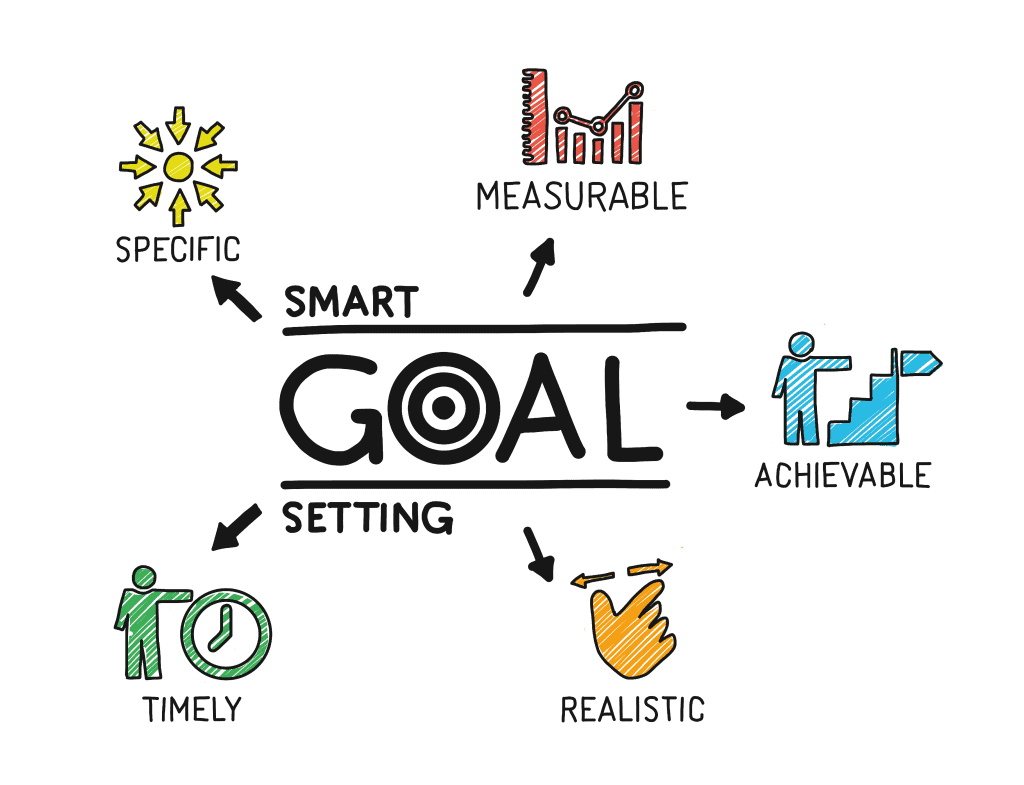Are you having trouble sticking to your business goals and need to overcome this problem? There are a number of strategies that you can use to ensure that you set business goals that stick. Meeting your goals is important since it can promote growth, increase sales, and generate more customers.
Research shows that only 5% of businesses achieve their yearly goals. This shows that there is a real problem among business leaders in setting the best goals based on what their business can handle. Continue reading to learn the top strategies for setting business goals that have a realistic chance of being met.
Why Business Goals Are Important
Setting business goals is important because it gives your business something to aim for. Without them, the team may wander from task to task aimlessly, whereas goals can motivate you to strive and achieve higher than you would have otherwise.
Also, it’s important to set goals that are not too hard to achieve since that will demotivate the team since the task seems overwhelming. However, the goals should not be too easy either. That’s because there needs to be a challenge that inspires the team to push their boundaries.
Consider The KPIs
KPIs (Key Performance Indicators) are an important part of goal setting. These allow you to measure your success and figure out if you’re close to meeting your goals, or have gone off-track.
Here is a summary of the different types of KPIs your business could aim for:
- Sales: making money is the primary function of most businesses, so sales is one of the more important KPIs. It’s hard to force or predict sales, so setting these types of goals can be tricky. However, there are many software solutions that can help you make sales predictions based on a variety of metrics.
- New customers: generating new customers is important for businesses to stay afloat. It can take a lot of marketing resources and money to get new customers, but it’s worth the effort.
- Repeat sales: the lifeblood of a business is the ability to generate repeat sales. In fact, it’s cheaper to get sales from existing customers rather than finding new ones.
- Customer reviews: many customers look at reviews when deciding whether to buy from your business. Therefore, it’s important to pay attention to the quality of the customer review scores. You could set a goal to improve the score by offering a better overall service.
- Profitability: you may want to set a goal of reducing operating costs so that the profit per product improves. This allows businesses to make the most of existing sales.

Use SMART Goal Setting
SMART goal setting is a popular strategy that offers a solid framework. It ensures that your goals have the highest chance of meeting expectations and even exceeding them. Here is the outline of how SMART goals work:
Specific: are you able to convey your goals to employees in one sentence? Ideally, your goals should be specific so that there is clarity. You can use the KPIs mentioned above to ensure that your goals are specific.
Measurable: you’ll need to decide on the measurement you will use for the goals. Again, the KPIs mentioned above are the right way to go. Also, you need to decide on the right number when setting the goal. The balance between too easy and challenging is important.
Attainable: you need to make sure that any goal that’s set can be met by your team. This means there needs to be a logical sequence of events that can lead to the metric being met.
Realistic: figuring out how likely the measurement will be achieved varies based on the nature of the goal. However, you need to strike the correct balance between difficulty and too easy to get motivated.
Timely: you need to set a time limit for the goal to ensure that there is a target. Otherwise, procrastination and delays can undermine any goals that you set.
Decide on The Resources to Invest
Any goal can be achieved through brute force with enough resources. However, the trick is to make the most of the resources that you have available. Therefore, you have to prioritize the resources to ensure that all goals can be met.
The type of resources that you need to consider are money, real estate space, and employee hours. You need to slot in these resources into each of your goals so that you assign no more than is needed.
What to do After a Goal Has Not Been Met?
You need to have a review process for when goals aren’t met so you can determine what went wrong. This allows you to figure out how to overcome the problem so that next time your goals have a higher chance of succeeding.
Also, having a lot of metrics that showcase your efforts will help you during the review process. By looking at the numbers, you can spot instances where resources spent have not translated to improved performance.
Trial and Error is Required
Don’t expect to set business goals that stick on your first try. You’ll need to give yourself room to make mistakes and learn from them. After setting goals and failing to reach them, you’ll understand where you’re going wrong.
This enables you to improve the quality of your efforts to reach those goals and set more realistic ones in the future. Eventually, you should be setting goals that are met the majority of the time since it indicates that your business is functioning properly.
Final Thoughts
To summarize, you need to set business goals that stick to ensure that you and your employees are motivated to reach them. Using the SMART goals framework, you can increase the quality of your goal setting.
Also, you can get employees involved in the goal-setting process. After all, reaching the goal is a team effort, and getting them involved early on may increase motivation.








